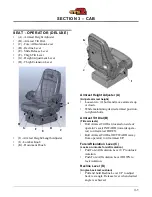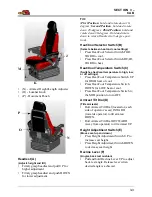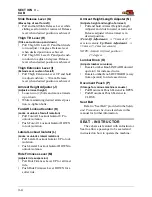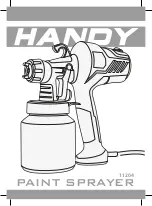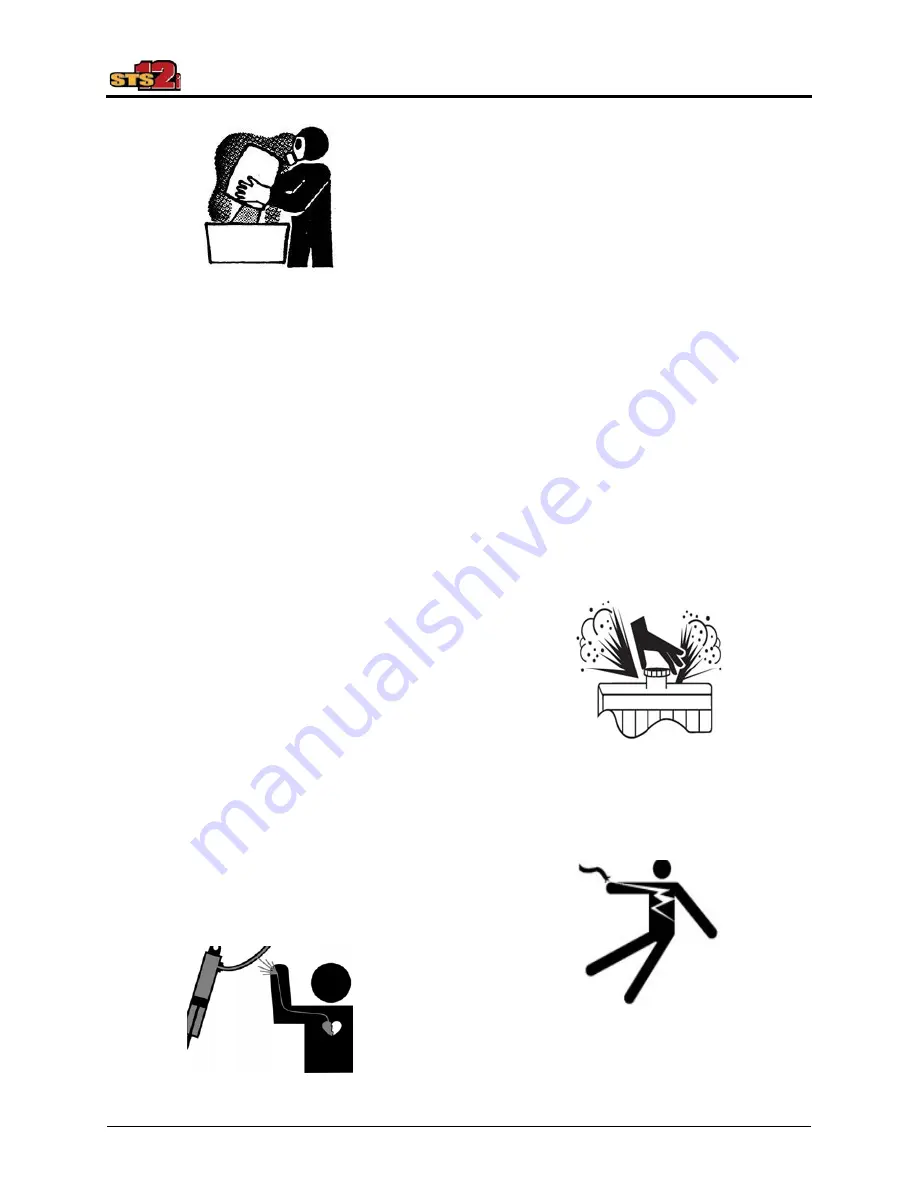
2-5
SECTION 2 –
SAFETY AND PRECAUTIONS
•
Wash spilled chemicals or spray residue
from the sprayer to prevent corrosion and
deterioration.
•
Select safe areas to fill, flush, calibrate,
and clean the sprayer where chemicals
will not run off to contaminate people,
animals, vegetation, or water supply.
•
Never place a spray tip/nozzle to your
mouth in an attempt to unplug it.
•
Do not spray when wind is in excess of
chemical manufacturer’s recommenda-
tion.
•
Store chemicals in their original contain-
ers with the label intact.
•
Store chemicals in a separate, locked
building.
•
Wear Personal Protective Equipment
(PPE) as recommended by the chemical
manufacturer.
Safe Hydraulic Maintenance
•
Always practice personal safety when
performing service or maintenance on
the hydraulic system.
•
Use caution when working around
hydraulic fluid under pressure. Escaping
fluid can have sufficient force to pene-
trate your skin, possibly resulting in seri-
ous injury. This fluid may also be hot
enough to burn.
•
Always lower the load or relieve the
pressure before repairing a hydraulic oil
leak.
Beware of Exhaust Fumes
•
Never run the machine in an enclosed
area. Proper ventilation is required. Use
an exhaust pipe extension to remove
fumes if you must operate inside a build-
ing. Also, open doors and windows to
bring in enough outside air into the area.
General Maintenance Safety
•
Turn off engine before checking, adjust-
ing, repairing, lubricating, or cleaning
any part of the sprayer.
•
Remove all chemical residue from the
work area before performing service/
maintenance.
•
When servicing the radiator, allow
engine to cool before removing the pres-
surized cap.
•
Disconnect battery ground cable and turn
the Battery Disconnect Switch OFF
before servicing the electrical system or
welding on the machine.
•
Machines equipped with All Wheel Steer
(AWS) have position sensing internal to
the steering cylinders. Disconnect each
sensor before welding on the machine.
^
Summary of Contents for STS12i Combo
Page 276: ......



























